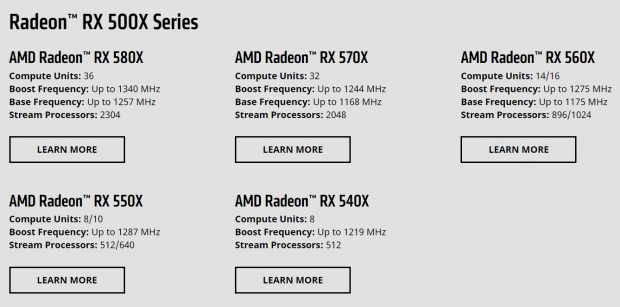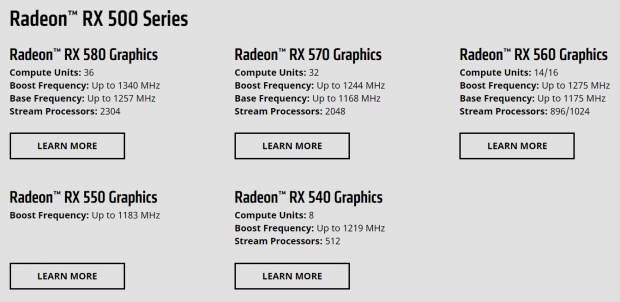AMD's RX 500X graphics cards specs show they're actually just OEM rebrands
X doesn't mark the spot
Earlier this week, AMD suddenly put up a load of blank product pages for what seemed to be a new series of graphics cards on its website. The so-called RX 500X series looked as though they might be slightly fancier, faster versions of AMD's current RX 500 line-up, such as the Radeon RX 580 and Radeon RX 570. Sadly, it turns out they're nothing of the sort, as AMD's newly revealed specs for the RX 500X series show they're pretty much identical to their non-X predecessors. Booo.
As you can see from my screengrabs below, everything about the RX 500X series is more or less exactly the same as its non-X variant, from the base and boost clock speeds to the number of stream processors. In one fell swoop, AMD has dashed any hopes of the RX 580X potentially replacing the regular RX580 as one of today's best graphics cards for 1440p gaming.
Instead, the only real change is that there are now two types of RX 550X cards - one with slightly fewer compute units and stream processors and one with a couple more.
So why is AMD releasing a new set of RX 500X cards that are basically the same as the current RX 500 ones? According to VideoCardz, it appears as though the X variants are destined for pre-built PCs and laptops rather than shop shelves. As a result, it looks like you won't actually be able to buy an RX 500X card directly - you'll only find one in a ready-made system from an OEM.
That's fair enough, you might say, but it also introduces a fair amount of confusion into the mix, particularly for those looking to buy an RX 550X or RX 560X-based system. Now that there are two types of card available for these models, buyers will need to be extra vigilant about exactly which one they're actually getting, as the lesser card isn't likely to be as powerful or deliver the same kind of gaming performance as its higher-specced sibling.











